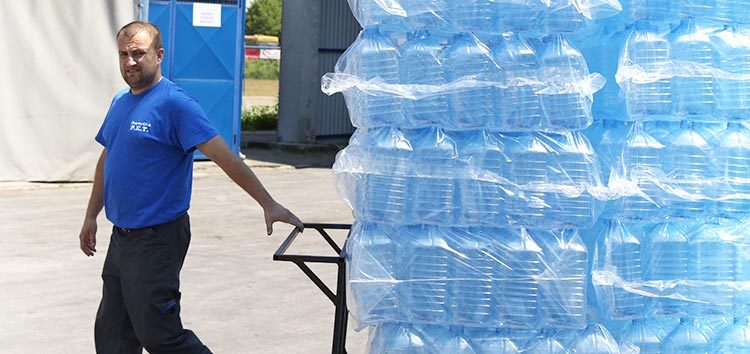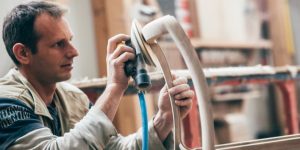EBRD and EU assist with more access to finance and know-how
Bosnia and Herzegovina is one step closer to joining the European Union (EU) since it formally applied for membership this February. And yet it will remain a candidate country until it makes more progress in implementing agreed laws and policies.
In practice, for businesses, this entails a need for often costly upgrades and understanding of know-how on EU requirements.
That’s why the EBRD and its largest donor partner, the European Union, stepped in with a tailored programme aimed at supporting small and medium-sized enterprises (SMEs) in increasing their capability to access the EU market and face competition.
This EU/EBRD SME Competitiveness Support Facility is expected to provide financing of €20 million through three local partner banks and is complemented by EU grant funds to cover consultancy costs and financial incentives to sub-borrowers.
Ian Brown, EBRD Head of Bosnia and Herzegovina, says: “We are very proud of this important programme which allows us to address key issues facing local businesses in a targeted and focused way. It demonstrates what the EU and EBRD can do working together and will set standards in easily accessible support in areas where it is much needed.”
One of the benefiting SMEs is Omorika – a PET packaging producer from Doboj, in the north of the country. Omorika received a relatively small loan and technical cooperation support to upgrade their health and safety, environmental protection and product quality measures – all in line with EU standards.
At Omorika they manufacture preforms and plastic packaging made from PET, a material best known as clear plastic. Then they sell their preforms and containers to various clients, who use them for bottling drinks, oils and chemical products.
PET is one of the most widely used plastic materials in the world. Manufacturers like it because it’s safe, strong, clear and versatile. Customers choose it for its safety, lightness, shatter-resistance and recyclability.
“The extensive EBRD experience in large scale regional initiatives, combined with hands on knowledge of EU SME Policy seeks to create maximum benefits for SMEs in Bosnia and Herzegovina,” said Melvin Asin, Head of Cooperation, EU Delegation to Bosnia and Herzegovina.
“It also furthers synergies with relevant EU policies, by facilitating the introduction of EU standards through the provision of adequate advisory services as well as better access to loan finance.”
Omorika is modernising its facilities to meet EU requirements so they will be ready once the country joins the EU.
Thanks to the loan, they were able to purchase two pieces of equipment – a water chiller and PET drier. Both are energy-efficient. Omorika’s staff also received training on how to operate them safely.
With these new machines, the production process is more stable, and the final products are of higher quality. In terms of environmental compliance, the new drier doesn’t emit gases contributing to ozone depletion.
Bokan Dušan, the owner of Omorika, said: “The EBRD provided us with strong support. They made it possible for us to purchase modern and new equipment, allowing us to make savings in energy. Also they helped us train our production employees, and we’ve managed to become a lot more competitive in the European market, when it comes to our products, their delivery and sales.”
Meeting EU market requirements is not the only incentive for Omorika to improve its production systems. Conservation of natural resources and the environment, reduction of plastic waste pollution and raising employment are also important to the owners.
“Our company tries to raise awareness among local community about collecting PET packaging for recycling in order to keep our environment clean“, said Mr Dušan.
Thanks to this joint EBRD/EU programme, not only local economy is boosted, but also the environment is preserved.




